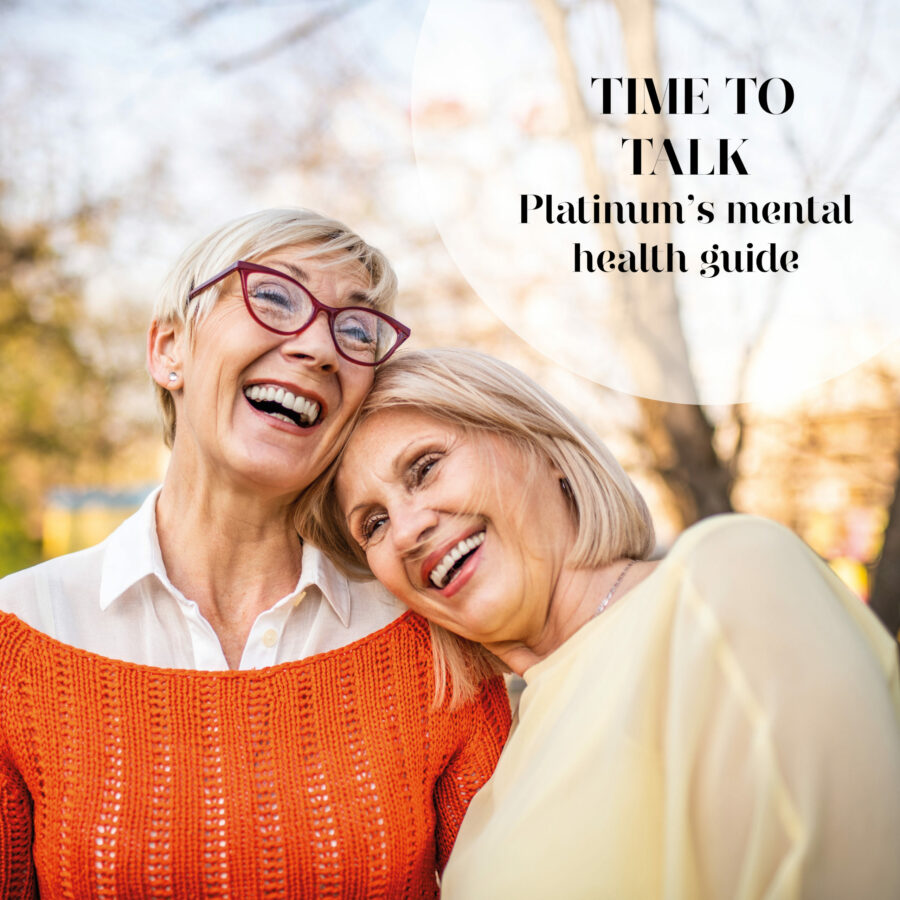As one of the biggest days on the mental health calendar, Time to Talk day 2020 encourages people to speak about mental health and start taking better care of their mind as well as their body.
We are talking about mental health more and more, but there’s always work to be done. One of our health writers, Siski Green, shows you what signs to look out for and how to treat yourself to get better.
You probably know what a healthy diet consists of — plenty of fresh fruit and vegetables, lean protein and so on, right? — but what’s the best recipe for mental health? Those of us who were born pre-70s may still be suffering with that old British stiff upper lip that doesn’t permit us to admit that there’s something wrong. But it’s time to change that, because according to research from Age UK around half of us have had, or will have, a mental health issue.
Looking after your mental health should be your number-one priority along with physical health. Here’s what you need to know.
-
Focus on feelings
A major contributing factor to mental health issues is how you feel about yourself, your body, your personality and your life in general. If you’ve always feared ageing for example, you’ll be more likely to suffer with anxiety or depression after the menopause.
Low self-esteem is another important factor. Finding a way to express your feelings is key to overcoming negative emotions.
“Feel the emotion, don’t become the emotion,” is a mantra you can repeat to yourself, too.
If you feel irritation or anger, recognise it as a temporary feeling, then shake it off.

Research from the University of Rochester Medical Center suggests journaling can help ease symptoms of depression or anxiety by making you more aware of what’s going on inside your head, shifting your viewpoint and bringing you back to reality.
-
Sweat it out
Feeling lethargic and hopeless makes it harder to motivate yourself to exercise, but if there’s only one thing you do on this entire list, this is the one that can’t fail to improve your health — both psychologically and physically.

To help overcome the sense of not having the energy or the time, use a seven-minute workout programme. There are several apps and YouTube videos with short workouts. Seven minutes is enough for your body to register the effort and if you manage to do them regularly, you’ll see physical changes in your shape as well as feel better mentally.

Research from McMaster University found that even a few minutes of very intense exercise can produce health benefits similar to longer endurance-style training — so even those seven minutes
are worth it!
-
Find your people
You are not alone. According to Age UK, more than a third of those over 55 who have suffered with a mental health issue don’t know where to go to get help. “Getting support from other women can be very helpful, through an online forum or in face-to-face groups, as well as from friends. It can make all the difference when negotiating all that life throws at us, as women aged 55 and over,” says Jolie.

Shutterstock
-
In the know
Always remember, you are not alone. If you feel lonely because of mental health problems, you are one of many. Here, the figures show how common these issues are.
50% of adults aged 55 and over (around 8 million people in the UK) have experiences mental health problems, according to Age UK.
Depression is most likely to affect women aged between 40 and 59. This could be down to hormonal fluctuations, or a response to the physical changes those hormones trigger.
Around 17% of men are treated for mental health conditions.
The figure is double for women at 29%. This doesn’t necessarily suggest that as a woman you’re more likely to have a mental health issue. In fact it may suggest that as a woan you’re more likely to seek help, which is a positive thing.

For more information on Time to Talk, see time-to-change.org.uk. You can also visit the NHS website for helpline numbers, medical advice and guidance on how to better acknowledge mental health issues in yourself and your loved ones.








